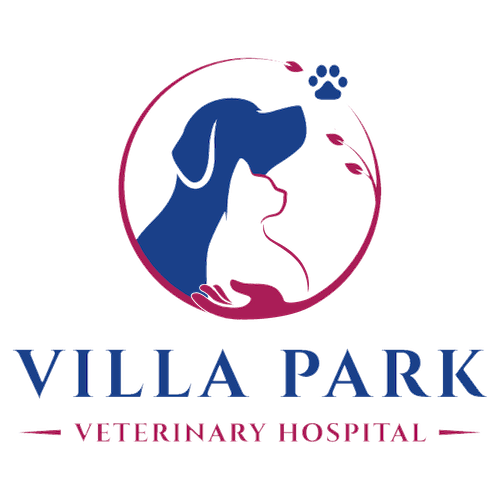What information does my veterinarian need to know about my dog's lifestyle before providing preventative care recommendations?
Your veterinarian needs to know about your dog's lifestyle, such as whether they are active on trails, spend time in the yard, or are mostly indoors. They'll also need to know about their social life, like if they attend doggy daycare, go to boarding or grooming facilities, or if they are mostly a stay-at-home dog.
Sarah, CVT
Villa Park Veterinary Hospital
What recommendations will my veterinarian make when it comes to my dog's preventative care plan?
Your veterinarian may recommend bi-yearly exams, quality exercise, regular teeth brushing, grooming, feeding a quality diet, using flea and tick and heartworm prevention, maintaining a healthy weight and lifestyle, spaying or neutering, yearly blood work testing, and vaccinations based on your dog's lifestyle.
How can I keep my dog safe while in the car?
To keep your dog safe in the car, it's important to secure them in a kennel or carrier, or attach them to a seatbelt with a harness or collar.
Why should I keep my dog on a leash when in public?
Keeping your dog on a leash in public is important for safety reasons, as there may be environmental triggers like passing cars, squirrels, or other dogs. A leash helps ensure your pet stays secure and close to you.
What can I do to keep my house and yard pet safe?
To keep your house and yard pet safe, make sure your yard is fenced in and your dog wears a collar with tags when outside. Microchipping your pet can help locate them if they escape. Additionally, ensure you have pet-safe plants and flowers both inside and outside your home.
What pesticides are harmful to my dog?
Pesticides harmful to your dog include outdoor products like Roundup and fertilizers. Other potentially dangerous substances include antifreeze, engine coolant, rodenticides, and ant traps.
What are the most common dog health conditions that can be prevented with a good wellness plan?
Common dog health conditions that can be prevented with a wellness plan include leptospirosis, which is a zoonotic disease dogs get from the urine of wildlife. Distemper, parvo, rabies, heartworm disease, and tick-borne diseases can also be prevented. Regular vaccinations, heartworm prevention, and tick prevention are essential aspects of a wellness plan.
If you still have other questions and you'd like to reach out to us, you can call us directly at (630) 832-1666, or you can email us at [email protected]. But please do reach out, and we'll get back to you as fast as we can. Don't forget to follow us on social media https://www.facebook.com/VillaParkVeterinaryHospital, https://www.instagram.com/villaparkveterinaryhospital/
Dog Preventive Care - FAQs
Sarah, CVT
Villa Park Veterinary Hospital
What does dog preventative care mean?
Dog preventative care refers to the various actions taken to keep your pet healthy. This includes regular visits to the veterinarian (once or twice a year), ensuring they receive proper vaccinations, administering monthly preventatives, maintaining a well-balanced diet, and promoting a healthy lifestyle.
What will the veterinarian do during a dog preventative care appointment?
During a dog preventative care appointment, the veterinarian may perform a full physical exam, address any questions or concerns you have about your pet's lifestyle, discuss grooming frequency, vaccination schedules, exercise requirements, and socialization needs. They may also administer vaccinations, conduct blood tests, and perform a fecal test.
What preventative medication does my dog need monthly?
Veterinarians at Villa Park Veterinary Hospital recommend using Sentinel Spectrum and HeartGuard for heartworm prevention, as well as Bravecto and Simparica Trio for flea and tick prevention. In cases of active flea infestations, they advise administering Capstar, followed by a monthly preventative treatment.
If you have any questions about your dog's preventative care, feel free to contact your veterinarian.
If you still have other questions and you'd like to reach out to us, you can call us directly at (630) 832-1666, or you can email us at [email protected]. But please do reach out, and we'll get back to you as fast as we can. Don't forget to follow us on social media https://www.facebook.com/VillaParkVeterinaryHospital, https://www.instagram.com/villaparkveterinaryhospital/
